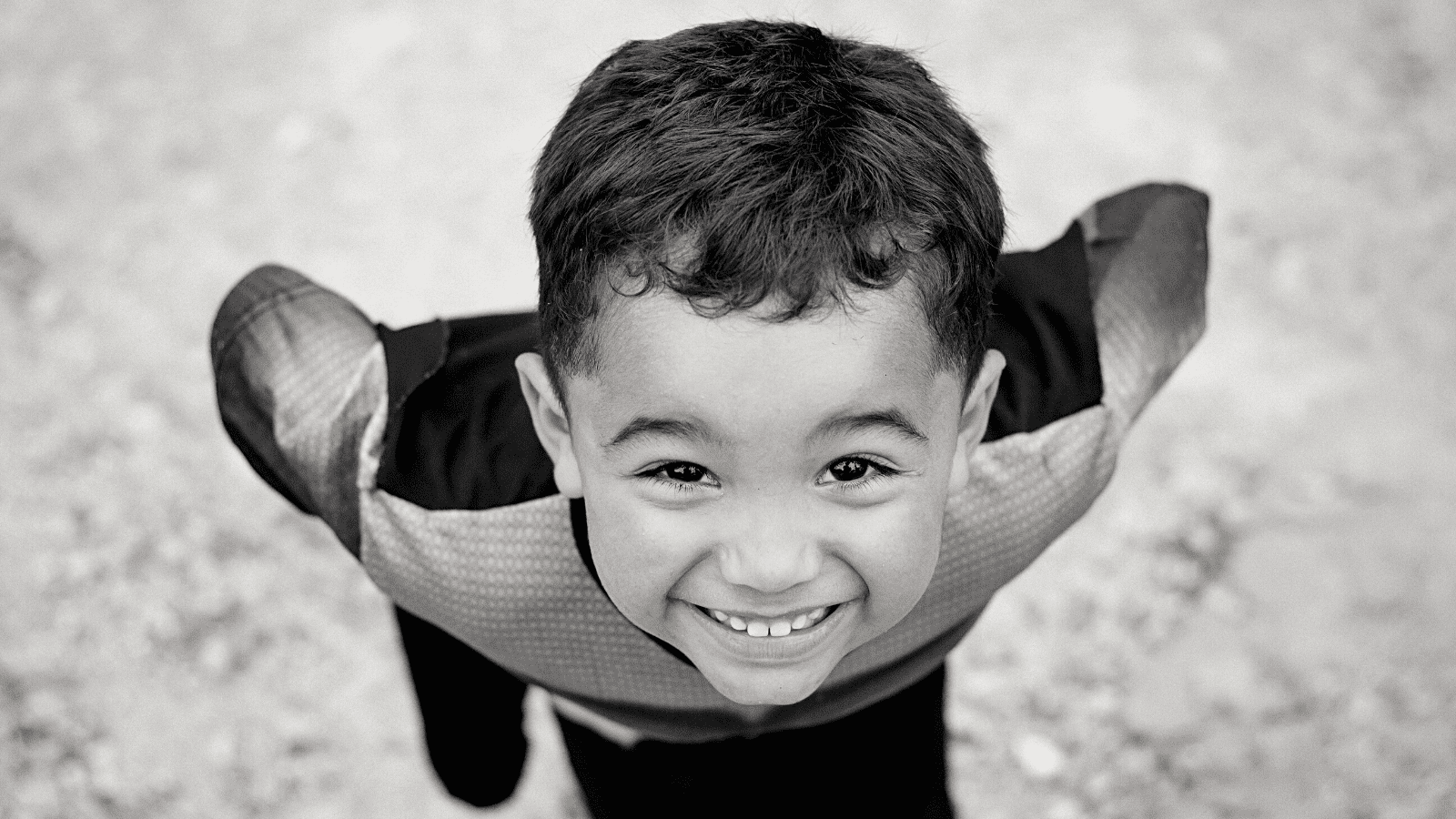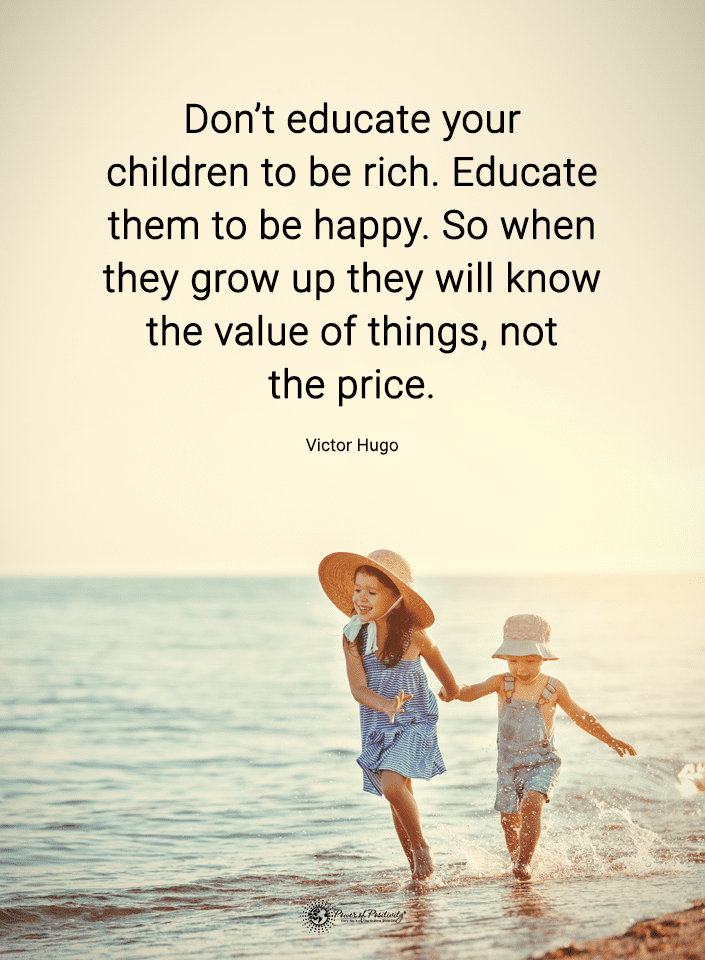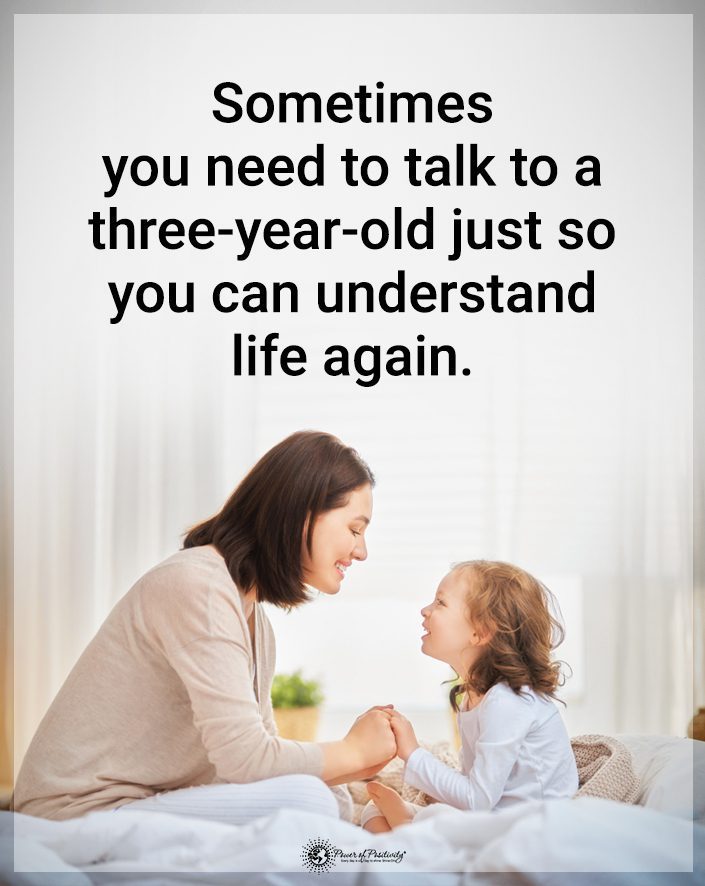Every parent’s dream is a thriving child who grows into a genuinely happy and capable adult. An empowered child is secure in their self-worth and won’t fall victim to bullying or peer pressure.
While the podcasts and parenting books teach how to handle potty training and teething, the resources for developing your child’s character are limited.
Raising an empowered child is possible when parents teach mastery of space, health, thinking, and harmony.
Key 1: The Mastery of Space and an Empowered Child
Physical clutter causes stress and can even lead to anxious and depressed feelings. Research has shown that disorganization and clutter harm our minds. Our brains seek order, and the visual distraction of general clutter creates a mental overload, causing us to feel stressed and less focused.
Researchers found that cortisol levels (the hormone responsible for the feelings of stress) were higher in mothers whose homes were cluttered over those in clear environments.
The good news is that clearing clutter from personal environments has been shown to contribute to better focus and productivity directly.
Mastery of Space looks like maintaining a tidy space and understanding the value of a clutter-free, cared-for environment.
Making the bed every morning isn’t just a chore because ‘mom said so.’ It is an actionable way for the child to honor their rest sanctuary, honor their mental health, and start the day with a sense of accomplishment.
The small daily tasks (chores) that keep our space clutter-free are a way to anchor the day with intention by creating a physical space that mirrors our ideal mental space.
The Benefits of Mastery of Space
Children who have the opportunity to take responsibility for their surroundings with the understanding that they deserve to live in a clean environment reap many benefits as adults.
- They develop a more positive work ethic because they have learned to take goal-oriented action and focus their efforts.
- They become self-motivated to do a good job because they know completing their tasks intentionally and thoroughly benefits everyone. This positive gratification prompts them to continue to do a ‘good’ job the next time and the next task creating a positive cycle.
- Children will feel a sense of value and self-reliance, leading to an overall more responsible individual. Most children naturally love being responsible for completing a ‘grown-up’ task. In successfully achieving their goals, they feel an increased sense of self-worth and ownership of their actions.
- Mastery of space leads to more empathetic behavior. By actively maintaining their physical space, children can learn the value of the labor involved in the daily tasks required to maintain an ideal environment.
- By understanding the effort required to complete the chores, rather than not having the opportunity to be aware of when daily tasks because parents do them, children are less likely to take them for granted. They can place themselves in the caretaker role and empathize with the intent and actions taken.
Key 2: The Mastery of Health and the Empowered Child
Creating a connection to your body by caring for it physically gives the child a sense of self-control and power in their world. We can teach and model health mastery in the following ways:
- Eating natural foods that are alive and come from earth provides our organs with the nutrients we need to carry us through life. Prioritizing colorful vegetables and finding ways to prepare them, they are enjoyed rather than eaten from obligation.
- Drinking water to care for our physical body and to feel more alert and content
- Respecting our body’s need for quality and consistent sleep patterns to optimize physical and mental health.
- Moving our bodies in a way that we enjoy (dancing, playing, walking, sports, etc.) to get fresh energy mentally and physically.
- Honoring what makes us unique, from hair type to physical features.
- Prioritizing daily routine habits and self-care by mastering skills like hygiene with intention. It can look like brushing our teeth thoroughly because we deserve good dental health.
Diet
New research shows that a childhood diet can permanently affect one’s health throughout adulthood. A UC Riverside study found that a diet with too much sugar and fat as a child can permanently change gut bacteria.
A direct connection exists between eating nutrient-poor foods and an increased physical and mental illness risk. The quality of nutrition directly impacts the physical and mental health we can achieve.
By learning about nutrition and the gut-mind connection, we can offer our bodies the fuel they need to carry us through life.
Movement
Americans are less physically active than ever, meaning most of us are not getting into the movement that benefits our physical and mental health.
Not getting enough movement causes physical limitations, trouble concentrating, and a general lack of energy in the short term. But the long-term physical effects can range from blood pressure issues, heat conditions, and lower quality of life in older age.
Our mental health suffers too. An article published by Johns Hopkins Medical found that inadequate physical inactivity can lead to mental illnesses such as depression and anxiety, while prioritizing consistent movement may decrease anxiety and depression symptoms.
Teaching and modeling the importance of caring for our physical body is integral to raising an empowered child. In teaching mastery of health skills, the child gains lifelong skills and habits that will continue to benefit them for decades.
Self Care
Self-care involves physical and mental skills to take control of your health, including kindness, empathy, and mindfulness. From skin care to brushing their hair, self-care plays a role in children’s health and happiness.
Modeling the importance of caring for mental and physical wellness helps children become more introspective. Teaching children, they are in charge of their well-being (emotionally, physically, and mentally) empowers them to feel more connected to their emotional and physical needs.
Self-care practices prepare children to handle the big emotions of childhood and the upcoming stresses of adult life. By regularly practicing self-care, your child will be able to understand how to care for themselves, become more independent, and feel more self-assured.
Key 3: The Mastery of Thinking and an Empowered Child
Young children have a naturally optimistic nature because they have yet to experience the challenges that come with life. As they grow and have a variety of experiences, the mastery of thinking becomes more and more imperative.
Mastery of thinking involves curating an intentionally positive mindset, affirming your beliefs daily, and practicing gratitude. It can be a simple habit, stating every day with gratitude practicing affirmations,
Positive Mindset
You can be a role model for positive thinking in your child’s life. Positive thinking is sometimes misinterpreted as ‘sugar coating’ or ‘toxic positivity.’ It is the practice of approaching challenges with a positive outlook, choosing to see the best in others, and meeting the ‘bad’ parts of life head-on with the knowledge you are capable of.
Also, awareness of the content we consume and how it affects our mental health is something that even younger children can begin to understand.
By surrounding ourselves with positive messaging and limiting low-quality content, we repeatedly train our brains to seek out and revel in the positives of life.
A positive mindset makes people happier, healthier, and more successful and reduces anxiety. The power and self-confidence a positive mindset can create within your child are truly invaluable.
Affirmations
Positive affirmations are a simple way to impact mental health immensely. A positive affirmation is a simple positive statement repeatedly used to boost positive thoughts about oneself or to challenge negative thoughts.
Any age child, even toddlers, can practice simple positive affirmations such as:
- I am loved
- I am grateful
- I am strong
- I am brave
- I am important
You can tailor the positive affirmations you use with your children to motivate, foster self-worth, or encourage growth.
Several studies prove that positive affirmations create vast mental and physical health benefits. Through self-affirmations, children learn they are their internal narrative’s creator.
Their self-identity is flexible, not based on their outward successes and failures but on their known intrinsic value. They develop integrity and self-worth by repeating self-affirmations and maximizing opportunities to live up to them.
For example, a child who often self-affirms phrases like “I am brave” can meet unknown situations with more courage and less resistance. Their affirmations have created the unforgettable knowledge that they have courage.
Practicing gratitude
Add a daily gratitude journal to your daily habits. Or create a morning (or nighttime) routine with your child. Each of you can take turns speaking on three things you can be grateful for in your life on this day.
Children who learn the principles of mastering their thinking have more reachable baseline happiness and retain more resilience in challenges. It raises children to believe in themselves genuinely. They face adversity with an “I can do it” mentality rather than fear or shame.
Key 4: The Mastery of Harmony and an Empowered Child
The mastery of harmony significantly impacts how our children relate to their own emotions and the emotions and interactions of others.
Controlled breathing and mindfulness
Mindfulness is a skill that sounds simple but takes practice. Mindfulness is being present in the moment, observing your emotions and thoughts rather than suppressing or analyzing them. It’s the ability to experience the world around you.
You can teach mindfulness to children by:
- Naming body sensations, thoughts, and emotions.
- Share a 3-breath hug regularly to coregulate emotions.
- Move and stretch your bodies together in a shared activity or age-appropriate yoga.
- Play the senses’ game’, naming one thing you can see, hear, smell, feel, and taste (if appropriate!)
- Model mindfulness by narrating your mindfulness journey out loud
- Practice belly breaths. Rest a hand on your belly and have your child mirror you. Take several slow deep breaths together.
- Take a mindful nature walk allowing your child to stop and inspect their surroundings at their own pace.
Mindfulness can improve resilience and promote self-awareness and self-regulation in children. It can even protect children who are victims of bullying against developing depression.
Naming and feeling feelings
Many adults will do almost anything to suppress or ignore their feelings. But research has linked long-term repressed emotions with decreased immune system function and increased anxiety and depression.
Children won’t hold shame around’ negative’ emotions when learning how to identify, express, and manage all types of feelings. They are more comfortable and capable of navigating high-emotion life circumstances. They can connect more deeply with themselves and especially with others.
Help your child to name and navigate their feelings by:
- Frequently talk about their feelings, naming the feelings and talking about where they feel the feeling in their body
- Frequently talk about your feelings and model how to navigate them without judgment
- Please encourage your children to share their feelings during different experiences
- Normalize both positive and negative emotions
These skills can help your child develop stronger emotional regulation, imperative to long-term happiness and good mental health.
Understanding and practicing forgiveness
Holding onto grudges and carrying around emotions like anger only harms the person holding onto them (both mentally and even physically). Teaching forgiveness and reconnecting to a peaceful heart is vital for your child’s mental health. Forgiveness isn’t a feeling. It’s a choice.
Teach that forgiveness offers grace to others while freeing us from resentment or anger towards the person who has hurt us. Children who can forgive can embrace grace for others and themselves.
Children may struggle with learning to release contempt and forgive others. It may take time, but it is vital to make an effort. Understanding that we can only thrive in a place of joy and love. Anger plus anger only creates more anger. Compassion and love are what heals us.
Children who thrive in mastering harmony grow to be more empathetic, more connected in their relationships with others, and more assured in themselves. Leading to a more vibrant and fulfilling life.
A Parenting System That Empowers Children
These four key pillars + four additional key pillars for empowering your child is the foundation of The Happy Life System to live a genuinely happy life.
It gives you the What, How, Why, and Practice (skills) to empower your children to curate that inner confidence integral to living a fulfilled life. It is a purpose-driven learning path of success to create a self-empowered life.
Empowered Children Equate To Collaboration Rather Than Conflict
Children who are given the opportunity and taught the skills to work through challenges are eager to be a part of the solution. When children (and adults) have a choice and a voice, they feel empowered to direct change and take ownership of their actions. They cultivate a desire to collaborate rather than shut down in challenging situations.
An empowered child feels confident enough to make decisions based on their learned skills and knowledge of what, how, and why behind their actions. They naturally desire to take command of their lives in their daily tasks and habits.
Your children can value harmony and responsibility. They can desire to work together as a family unit rather than in power struggles and conflict. An empowered child will live as their true self in love and light.

















 Community
Community

